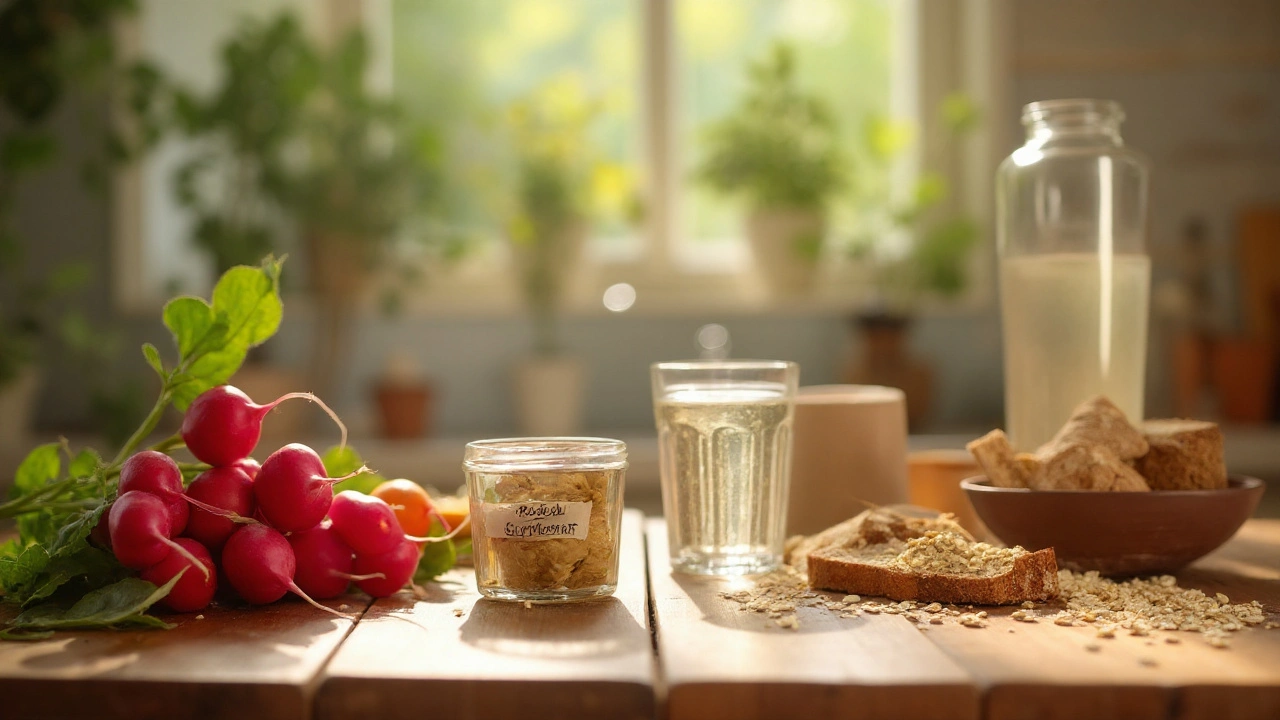Natural remedy: practical, safe choices for common problems
Want to try a natural remedy but unsure where to start? Natural doesn't always mean safe, and small choices make a big difference. Below are clear, practical tips you can use today — what works, how to use it, and when to get medical help.
Quick safety rules before you try anything
First rule: tell your doctor if you take prescription meds. Many herbs and supplements interact with blood thinners, antidepressants, and diabetes drugs. Second: avoid giving strong herbal mixtures to pregnant or breastfeeding people and to infants under 1 year (honey is a no-no for babies under 12 months). Third: choose products that list active ingredients and show third-party testing or a batch number. That helps avoid contamination or fake goods.
Start small. Try one change at a time so you can spot benefits or side effects. If a remedy causes stomach upset, rash, dizziness, or worsens symptoms, stop and seek medical advice. And if your symptoms are severe — high fever, chest pain, sudden weakness, severe bleeding, or breathing problems — skip home remedies and get emergency care.
Simple natural remedies that often help
Ginger for nausea: Fresh ginger or ginger capsules can reduce nausea from motion, pregnancy, or mild chemotherapy side effects. Try 500–1000 mg spread across the day, but check with your clinician if you take blood thinners.
Peppermint oil for IBS: Enteric-coated peppermint oil capsules can ease abdominal pain and bloating in people with irritable bowel syndrome. Use products designed to release in the gut, not plain peppermint oil, to reduce heartburn risk.
Honey for cough: For kids older than one and adults, a teaspoon of honey before bed can soothe cough and improve sleep better than no treatment. Don’t give honey to infants under 12 months.
Brahmi (Bacopa monnieri) for memory and focus: Several clinical trials show modest memory gains after regular use for 8–12 weeks. Look for standardized extracts and follow the product dosing on the label.
Turmeric/curcumin for joint pain: Curcumin extracts can reduce mild osteoarthritis pain for some people. Choose formulations with improved absorption and avoid high doses if you take blood thinners.
Topical emulgel or aloe vera for minor skin issues: For dry, irritated skin, modern emulgel formulations or pure aloe vera can help soothe and hydrate without heavy creams. Patch-test a small area first.
Want deeper reading? We have focused posts like "Brahmi Benefits" and articles on specific supplements and safety. Use those pages to compare doses and evidence before you buy.
Natural options can help, but they’re not a replacement for medical care. Use them wisely, check quality, watch for interactions, and talk to a clinician when in doubt.
Radish Supplement Benefits: How Radish Can Transform Your Health
Discover how a radish supplement can help boost your health, improve digestion, and offer natural support, plus tips to add it to your daily routine.
